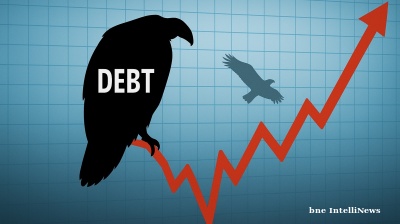Iran's judiciary blocked the Namava streaming platform and banned the series Souvashoun for operating without proper licences, the judiciary-linked Mizan reported on May 30.
Owned by internet service provider Shatel, Namava has competed with other local streaming platforms, including Filimo and Uptvs, which hold a larger market share and often show Western shows popular on Netflix. Since its inception, Namava has featured locally produced mini-series that are popular among Iranians both within the country and abroad.
The series faced confiscation due to lacking legal permits and “failing to comply with relevant authorities”, whilst Namava was blocked for “refusing to fulfil legal obligations.”
Iran's Audiovisual Media Regulatory Authority, known by its Persian acronym “SATRA”, oversees entertainment products on streaming platforms and is responsible for blocking the website.
Souvashoun, based on the story by pre-revolutionary author Simin Daneshvar and produced for the streaming platform by Narges Abyar, was banned for failing to obtain the required legal permits from broadcasting authorities, the news agency reported.
The judiciary blocked Namava following violations by the streaming service and its refusal to meet legal commitments regarding content licensing and regulatory compliance.
This latest action potentially indicates the Islamic Republic’s renewed enforcement of broadcasting regulations on digital platforms operating within the country's jurisdiction, with most viewers now watching programmes made by independent producers over state television’s strict rules and regulations.
Iranian authorities have increasingly scrutinised online streaming services and digital content providers, requiring compliance with domestic broadcasting laws and content approval processes.
The blocking of Namava affects one of Iran's prominent domestic streaming platforms, which offered Persian-language content, including original series and films, to Iranian audiences.
Broadcasting regulations in Iran require all audiovisual content to receive approval from the Ministry of Culture and Islamic Guidance (Ershad) before distribution to ensure compliance with cultural and religious standards.
Social media user Saham Boorghani wrote: "Blocking Namava for broadcasting Souvashoun is not only a foolish decision and return to factory settings, but an admission of deep fear of independent narrative. In the battle with culture, however, you will have no achievement other than scandal."
Vahid Jafari also wrote, "Things have reached a point where they no longer just confiscate series, they strike at the root of platforms! Namava was blocked for broadcasting Souvashoun. When even history is dangerous for some people."
Ehsan Rastgar wrote, "It's right for the prosecutor to object to Souvashoun violations. As predicted, producer Mohammad Hossein Ghasemi, director Narges Abyar, and Namava management failed to fulfil their commitments. The unprecedented display of mixed dancing scenes, normalising extensive physical contact and erotic scenes, represents a continuation of the subversive Woman Life Freedom discourse."
An audiobook version of the show was released in January this year, narrated in Persian by Shima Derakhshah, which had been vetted by authorities.
Features

The European Commission proposes to “creatively” tap Russia’s $300bn of frozen assets with Reparation Loans
The European Commission is floating a new idea of how to “creatively” tap Russia’s $300bn of frozen assets without the need to appropriate, which is legally questionable, by replacing the money transferred to Kyiv with EU-backed bonds.

“Yuri Gagarin” cosmodrome seeking a future in space – and tourism
Golden age of spaceport is long over, with Moscow focused on facilities in Russia. Kazakhstan, however, hopes it can find profitable niche in launching satellites.

Russia’s 13 “drowning men” sink into corporate debt – The Bell
The Central Bank of Russia has quietly acknowledged growing financial distress among the country’s largest companies, identifying 13 corporations as "truly problematic" borrowers at the end of the first quarter.

Iranian arrested for Kalashnikov shooting near Caspian Sea
Iranian authorities arrest driver who opened fire with Kalashnikov rifle during road dispute on busy Chalous highway connecting Tehran to Caspian coast.



